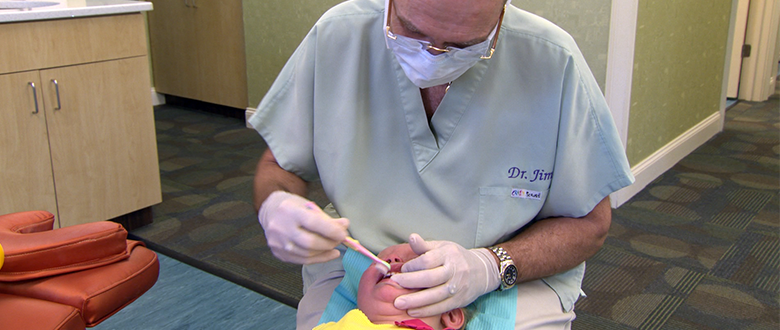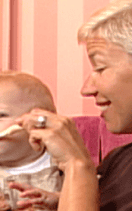It’s just a fact of life: Along with the piles of diapers, sleepless nights, and joy over the baby’s arrival, new moms expect to make well-child visits to the medical provider. But equally important to a baby’s good health is that first visit to the dentist by age one, says Bhavna Pahel, pediatric dentist in private practice with Village Family Dental in Fayetteville, NC, and mom of two.
Pahel, who is also adjunct Assistant Professor in the Department of Pediatric Dentistry in the UNC-Chapel Hill School of Dentistry, points out that while the first well-child visit to the medical provider focuses on vaccines, its equally important purpose is to build a relationship with the family. The earlier baby and mom get to know the medical provider, the less anxiety there is over time. Pahel feels the same is true of that first visit to the dentist. “Children quickly learn that the dentist office is just another place we go, where there is support with no anxiety. It can be a happy visit if there are no problems in the mouth. And regular check-ups, starting by age one, can help ensure there will be no problems.”
At those early dental visits, parents can expect the dentist to
*check baby’s mouth
*brush the teeth (usually while singing a song together)
*apply fluoride varnish
*answer questions and share guidance
*note oral health concerns to share with the medical provider
*deliver age-appropriate messages to keep baby healthy
Oral health messages are tailored to the baby’s development: with the first tooth, the conversation is about making teething easier; if the child is one, it’s about effective bottle-weaning; if the child is learning to walk, it’s about preventing falls and dental trauma. “It can be challenging,” Pahel says. “Families are juggling a lot, and it can be harder for single parents. Having a secure and safe place to go to talk about oral health is great. Knowing what to expect over the next six months to care for a child’s teeth removes stress and worry.”
Pahel believes good oral health contributes to a better quality of life. “Having a nice smile makes children feel secure, happy, and content with themselves. Our face is our presentation to the world: The world sees our face–our smile–and reacts to us– positively or negatively. If a child hurts, and feels and looks unhappy, it can be hard. It’s important to me as a parent and a pediatric dentist that children grow up with no cavities. I want children to develop good oral health habits so they can have healthy smiles and grow up to have positive attitudes about oral health and dental visits as adults.”
Interested in learning more? See the video Top 3 Things You Can Do to Protect a Child’s Healthy Smile.





